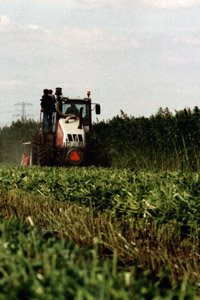Why criminalising industrial hemp is criminal

The hemp plant is being rediscovered for it environmental friendly applicability. As you might know hemp is one of the oldest crops domesticated by man. The history of cultivating hemp goes back for thousands of years. Cannabis cultivation appears to have evolved simultaneously in separate civilisations across Eurasia.
Humankind’s earliest utilisation of hemp was most likely in eating the seeds of the plant. Hemp seeds are among the most healthiest of grains on this planet. These seeds are low in saturated fats and full of high quality protein. Hemp is one of the most valuable and versatile resources known to man. The manifold advantages of fibre hemp as a primary agricultural resource are apparent from the very outset of cultivation. Apart from hemp’s natural resilience, the fibre for which the plant is prized for is not a viable food source for pests. Therefore, industrial hemp requires no insecticides. Hemp outgrows any competing plant which removes the need for herbicides, and even weeding.
Furthermore, the fibre hemp root system is highly beneficial to the structure of the soil in which it grows. Hemp requires no artificial fertilisers and, vitally does not deplenish its soil of essential nutrients in the way of many cash crops (such as cotton, corn and tobacco which can ruin for decades the land upon which they grow). This is due in part to the outstanding self-composting properties of hemp. The stalk of the hemp plant produces one of the world’s strongest natural fibres and can be used to make things like rope, textile and paper. Hemp pulp is by far the most efficient, rational choice for paper production. Hemp also competes with the other fast growing plants that are presently a resource for pulp.
Most of these products can be recycled several times. For example, after being used, hemp textiles can be processed into paper; paper converted into building material which on its turn may ultimately be used as an energy source. Also the seed of the hemp plant contains high grade food oil that can be used as a bio-fuel and in the manufacturing of paint and soap. Equally important is that in the treatment and processing of hemp fibres, wood and seeds, no chemicals are necessary – only mechanical methods and natural decomposition. Therefore, hemp does not only benefit the environment, but also human beings, animals and plants because the final products do not contain any harmful chemical residues.
These are just a few of the solutions offered by hemp to the various environmental problems faced today. The qualities that made hemp one of our ancestors’ most useful and valuable resources are no less important in the 21st century. Considering the sorry state of our planet’s ecosystem and endless political turmoil over the control of finite, fossil-based energy resources, we might conclude that hemp is of even greater importance to us than to our forbears. Dismissing these arguments just because of the fact that cannabis is an illegal substance is not only short-sighted but flat-out criminal.